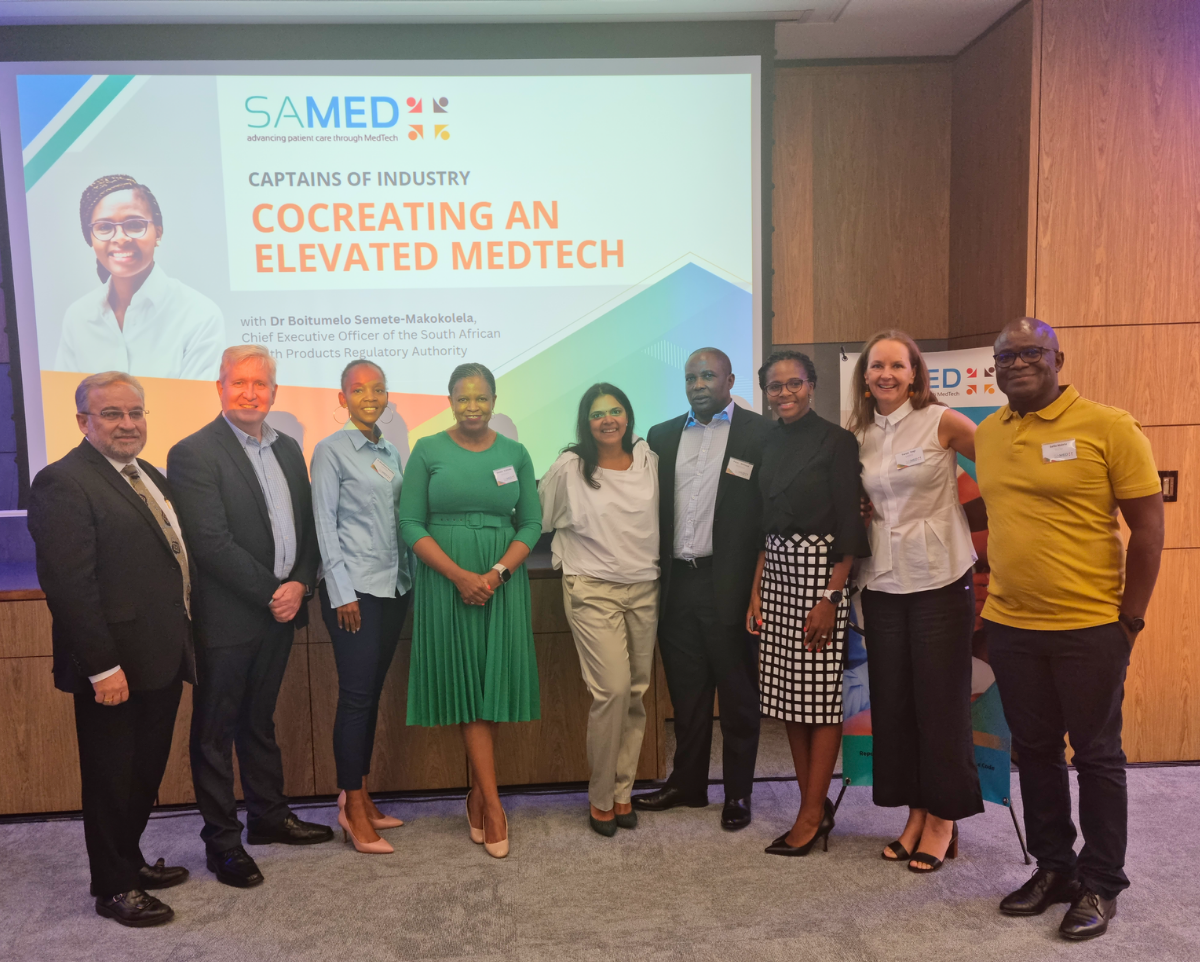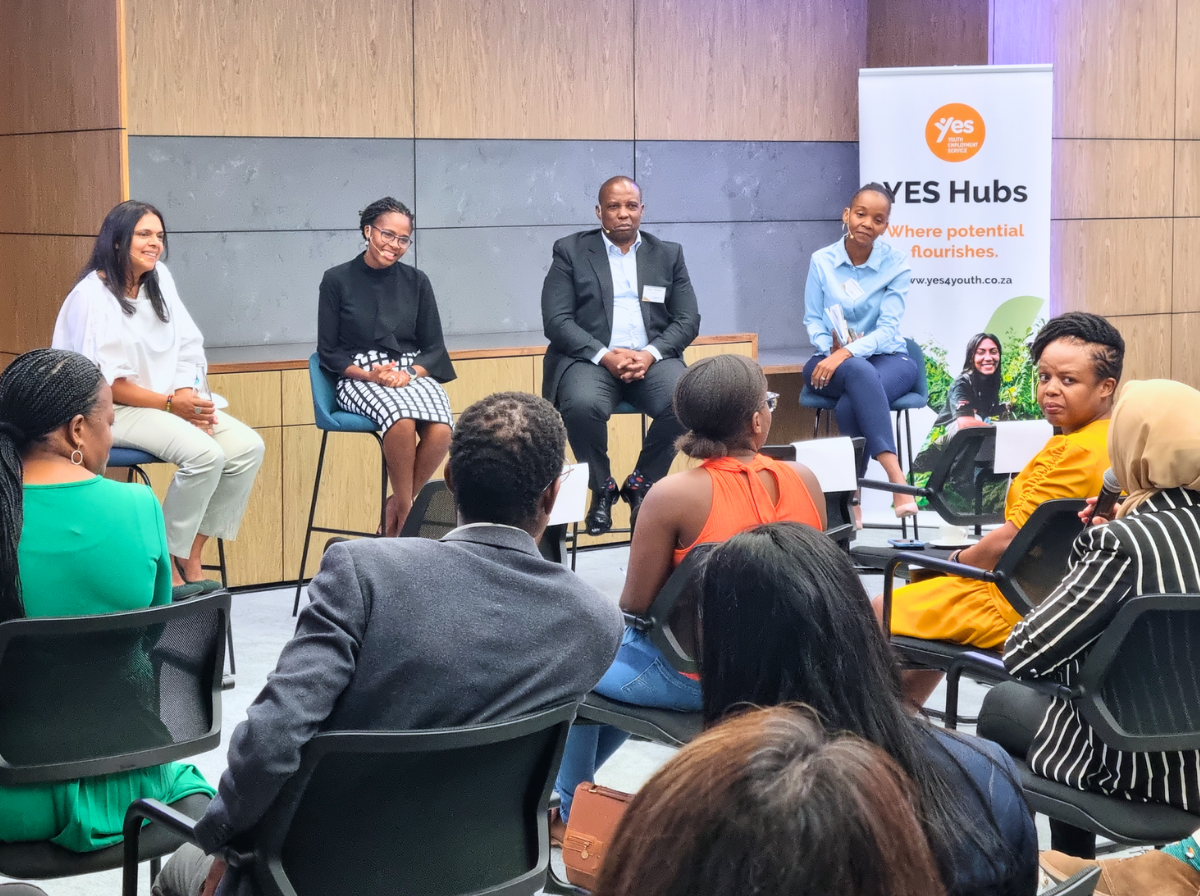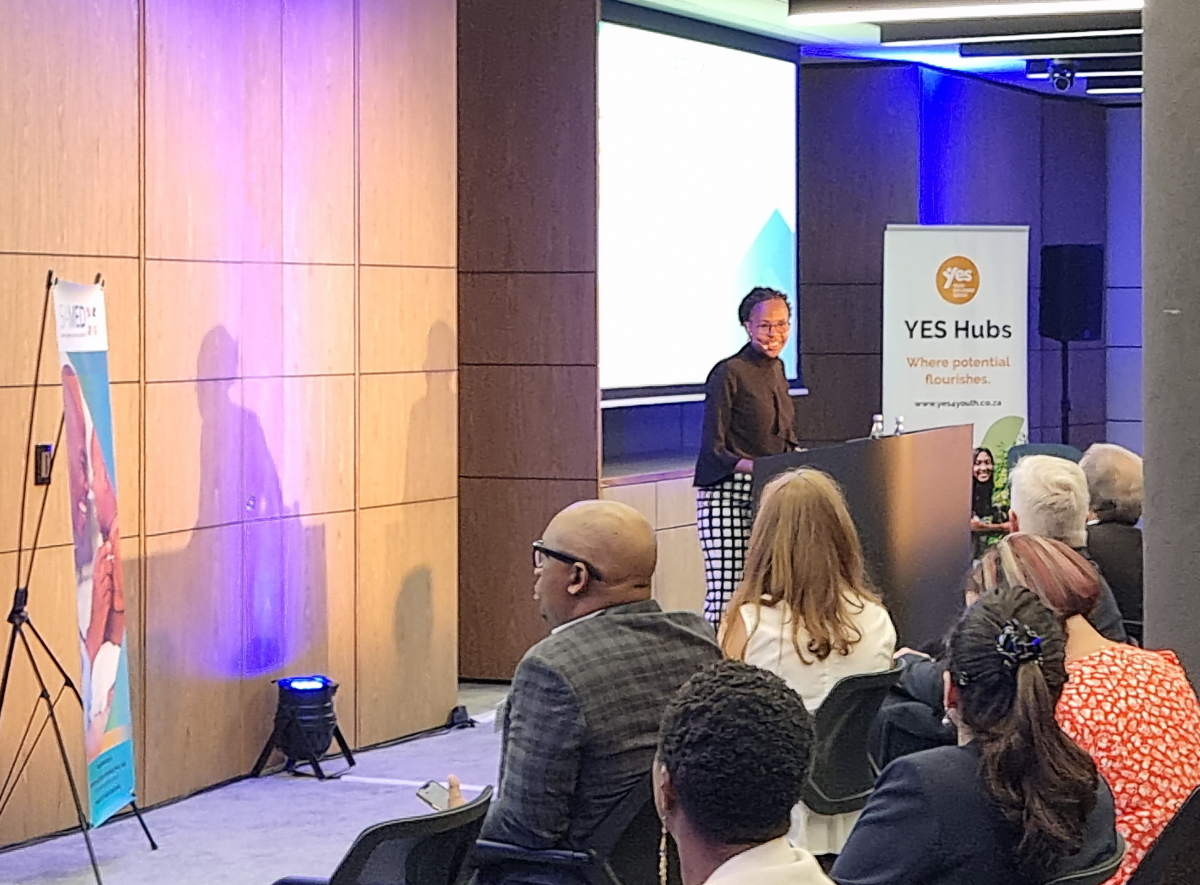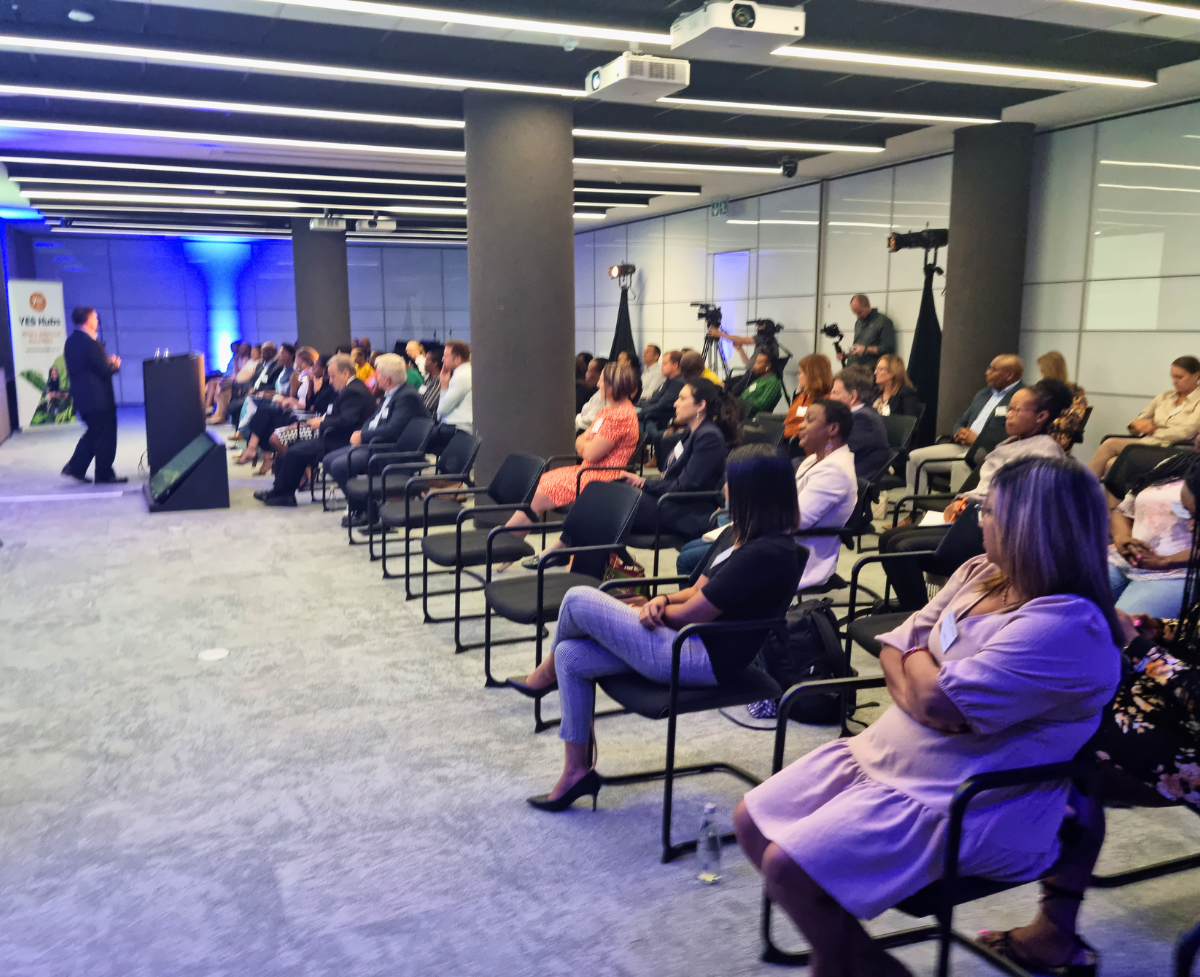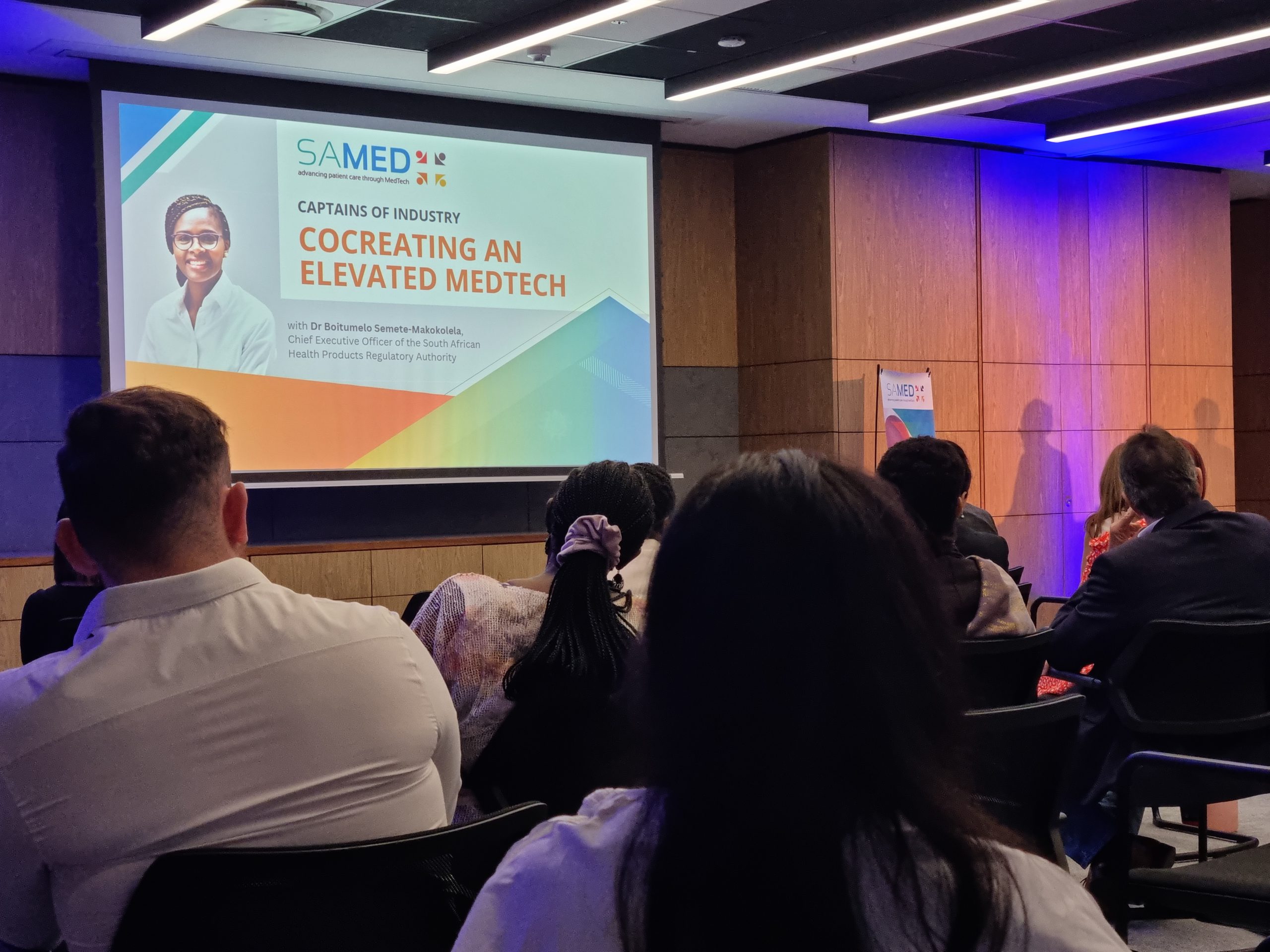On 17 March, the captains of the medtech industry came together with the leaders of the South African Health Products Regulatory Authority (SAHPRA) to discuss the future of medical technology regulations in South Africa and how SAHPRA, SAMED and the medtech industry can work together for the benefit of patients.
Dr Boitumelo Semete-Makokotlela reaffirmed her commitment to the medtech sector and her aspiration for SAHPRA to be a WHO-Listed Authority which would ensure that local regulatory compliance will be recognised internationally.
Partnership is about coming together and relying on each other’s strengths. Industry’s insights are of immense value to the SAHPRA. Dr Semete encouraged industry to participate in calls for comment and to raise industry challenges through their associations as part of the Industry Task Group (ITG) – of which SAMED is a member. Respect for the knowledge, role, and authority of the regulator (as well as industry) and constructive communication would elevate medtech regulation in South Africa.
It is SAHPRA’s responsibility to protect the patient and it was a balancing act to not over- or under-regulate the South African medtech sector. SAHPRA also has a vital role in preventing counterfeit and inferior products from entering the market. Testament to this is SAHPRA’s diagnostic requirements during COVID which ensured that the regulator did not need to do any recalls on COVID tests and ensured the tests mitigated the spread and potential deaths of South Africans.
Dr Semete confirmed that the draft regulations were with the Minister of Health pending publication. SAHPRA was already working on product registration fees which would be open to industry comment. Dr Semete was attentive to delegate inputs to consider that high fees may result in the exit of essential medtech (impacting patient access) and hamper the growth or sustainability of medtech companies – especially SMMEs.
For product registration, a milestone approach would ensure that companies had time to budget and prepare for the call ups and that the regulator had the necessary skills and capacity to manage the call up. Product registration would start with category D products in priority therapeutic areas and roll out in ‘bite size’ chunks to support both industry and the regulators resource constraints. In order to improve and strengthen processes and capacity, the regulator would start with a pilot before publishing a roadmap for registration.
Dr Semete and her medtech team (led by Dr Dimakatso Mathibe) are part of several international regulatory forums and had engaged their international peers extensively for best practice and lessons learned on product registration. As such, SAHPRA has included reliance models for product registration to reduce cost and administration burdens. SAHPRA were already planning recruitment efforts and engaging with university programmes to develop the required skills for an efficient product registration process.
Reuse of single use devices was also a key topic for SAHPRA and Dr Semete planned workshops to unpack the risks and benefits with both stakeholders and the medtech industry. “We cannot ignore the external factors, and so we need to be open to what the need is in South Africa.”
Dr Semete and Dr Mathibe listened attentively to delegate concerns and questions and affirmed that they would remain available to industry via the ITG, on email and for workshops and webinars – for both SAMED members and the broader industry.
This SAMED Captains of Industry Forum, with leaders from both industry and the regulator, was an important partnership-building step towards regulatory compliance and co-creating an elevated medtech sector.

